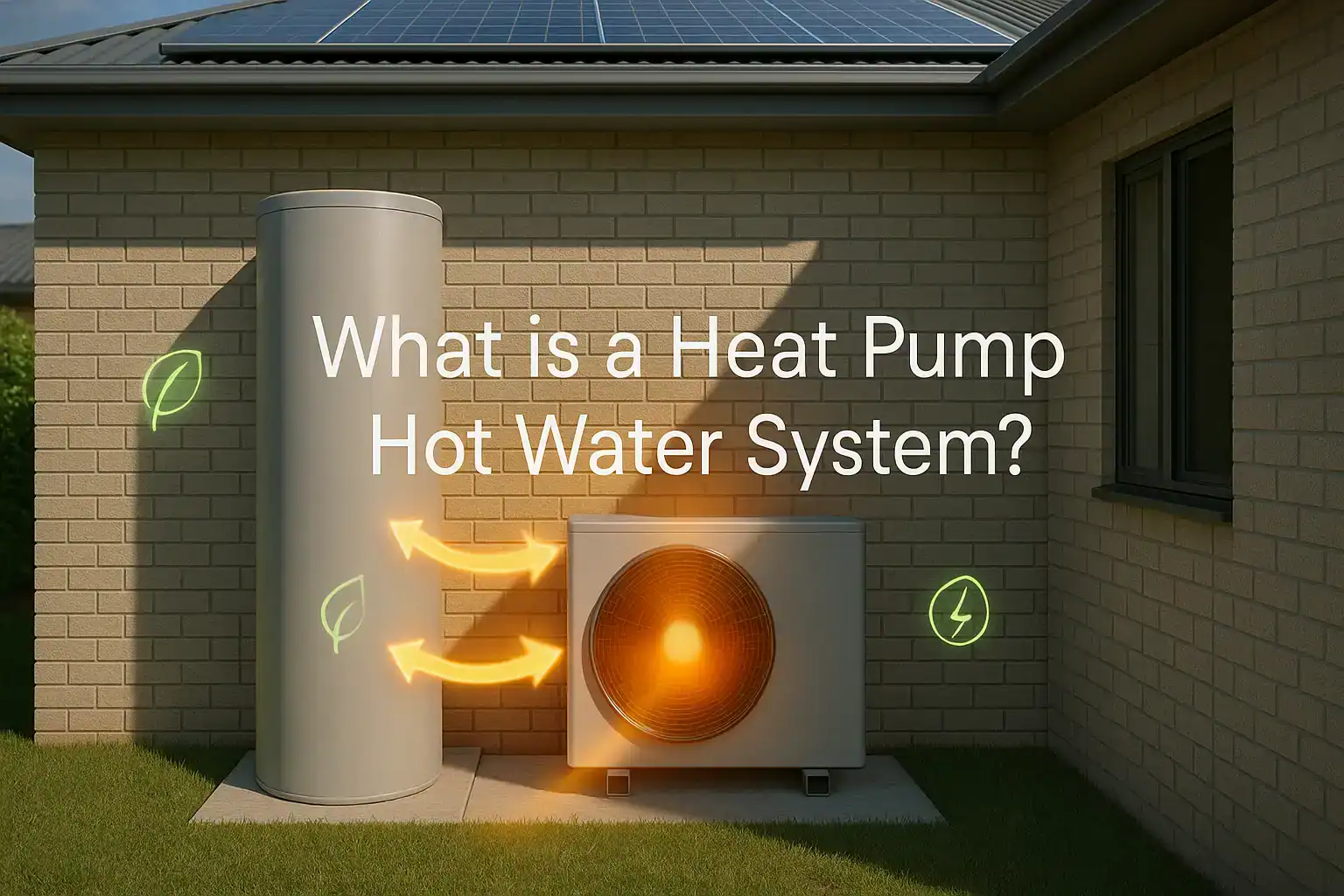If you’re looking to reduce energy bills and lower your home’s carbon footprint, you’ve probably heard about heat pump hot water systems.
But what exactly are they, and how do they work?
In simple terms:
A heat pump hot water system is an energy-efficient way to heat your household water. Instead of generating heat directly (like traditional electric or gas systems), it extracts heat from the surrounding air and transfers it into the water tank.
Think of it like a reverse fridge — pulling heat from the air and pumping it into your water.
How does a heat pump hot water system work?
The system uses a refrigeration cycle, similar to an air conditioner or fridge:
- Fan draws in warm air from around the unit.
- The air passes over a refrigerant, which absorbs the heat.
- A compressor increases the refrigerant’s temperature.
- This heat transfers into the water in the storage tank.
- The refrigerant cools and cycles back to repeat the process.
The result? Hot water for your showers, kitchen and laundry — while using far less electricity than a standard electric system.
For details about models and installation, visit heat water pump.
What makes heat pumps so energy efficient?
- They move heat rather than create it by direct electrical resistance.
- Typically use around 60–75% less electricity compared to standard electric storage tanks.
- Ideal for Australia’s mild climate, especially cities like Adelaide, where winter temperatures rarely drop too low.
By cutting energy use, heat pumps often pay for themselves over time through lower power bills.
Do heat pump hot water systems work in cold weather?
Yes — but performance can drop slightly in very cold weather.
Modern systems are designed to work efficiently even when outside air temperature falls to around 5°C.
Some models come with built-in electric boosters to ensure you always have hot water on chilly mornings.
If you’re in a cooler Adelaide suburb or rural area, choosing the right unit matters — that’s where local experts like SA Hot Water can help.
How long do heat pump hot water systems last?
With regular maintenance, heat pumps generally last around 10–15 years.
Key factors that affect lifespan:
- Regular servicing (checking the compressor, valves and filters)
- Proper installation by qualified technicians
- Local water quality
Are heat pumps noisy?
They do produce some noise — usually between 40–55 decibels, which is about the level of a quiet fridge.
Placement matters: it’s best to install them away from bedroom windows or neighbours’ homes.
Can you use solar power with a heat pump?
Yes — and it’s a popular choice.
Pairing a heat pump with rooftop solar PV panels lets you:
- Run the heat pump during sunny hours
- Heat water at very low cost or even effectively free on good solar days
- Further reduce your household’s carbon footprint
It’s one of the most energy-efficient combinations available.
Why choose a heat pump over a traditional electric or gas system?
- Uses less electricity, saving hundreds on bills each year
- More environmentally friendly
- Works day or night, unlike solar hot water panels alone
- May be eligible for government rebates in some states
- Safe, reliable and low maintenance
What should you know before buying?
- They work best in well-ventilated outdoor areas.
- Installation space: units are generally taller than standard tanks.
- Upfront cost is higher, but payback is usually within 3–5 years.
- Not ideal for very cold or shaded spots unless you choose a cold-climate model.
Need help choosing the right system?
Choosing the right heat pump depends on:
- Your household size and daily hot water demand
- Climate and property layout
- Whether you have solar power
For personalised advice and professional installation, talk to the team at SA Hot Water.
FAQ: Heat pump hot water systems
Are heat pumps suitable for apartments?
Usually no — they need outdoor space with good airflow.
Do heat pumps need maintenance?
Yes — annual checks help keep them running efficiently.
Can they completely replace my current hot water system?
Yes — they work as a standalone replacement.
Are heat pumps the same as solar hot water?
No — solar uses roof collectors; heat pumps extract heat from air.
Will a heat pump heat water at night?
Yes — they don’t rely on sun; they draw heat from surrounding air.

